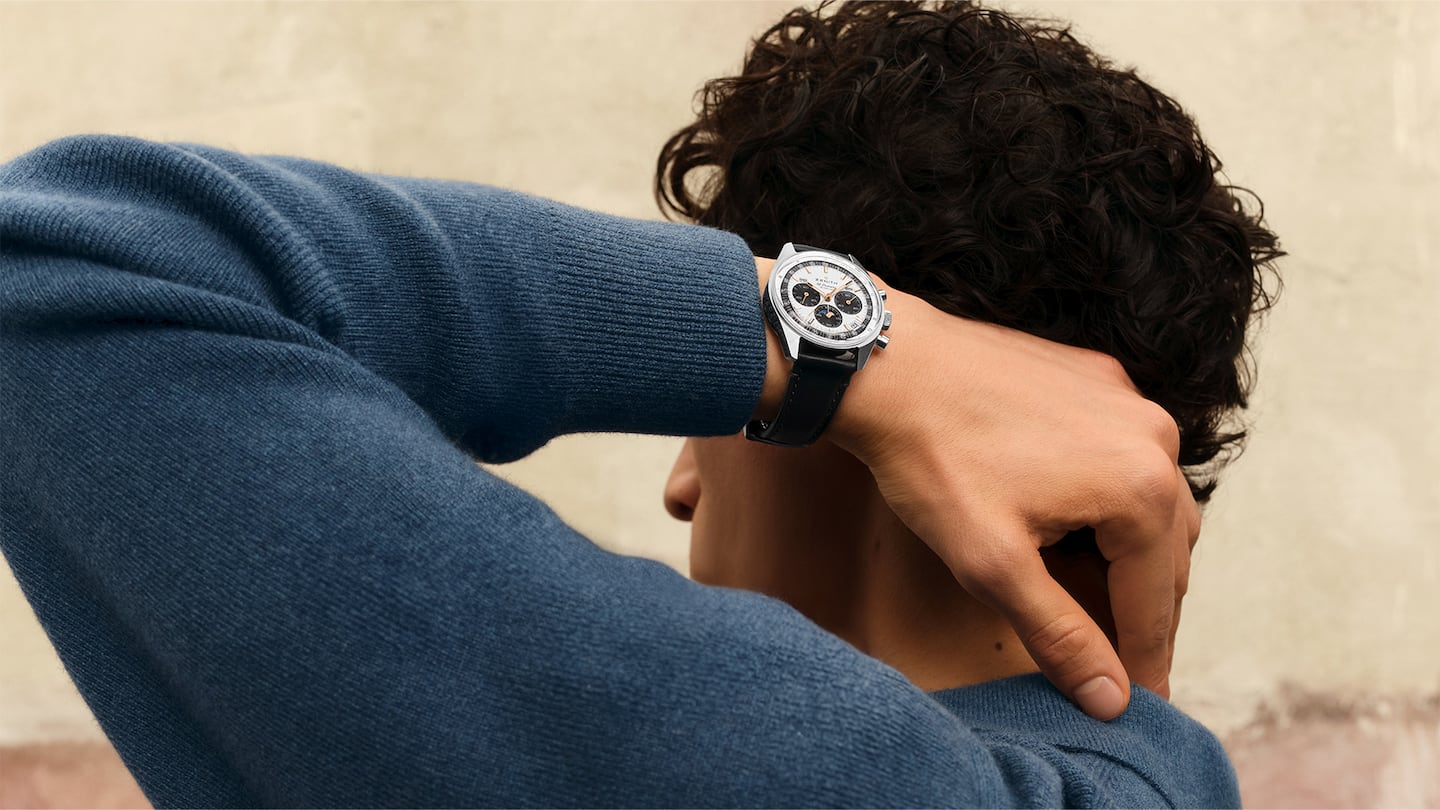
The Business of Fashion
Agenda-setting intelligence, analysis and advice for the global fashion community.

Agenda-setting intelligence, analysis and advice for the global fashion community.

MIAMI – At the LVMH Watch Week gathering in Miami, the mood was lifted this week not just by the winter sun, but by news that the Swiss watch industry had bucked fears of a downturn in late 2023 to report record sales.
On Tuesday, the Federation of the Swiss Watch Industry published figures showing that in 2023, Swiss watch exports increased 7.6 percent to 26.7 billion Swiss francs ($31 billion), a new high-water mark for the sector. Brands and retailers had warned of cooling demand in the autumn, with waiting lists coming down and supply finally catching up with backlogs created during Covid factory lockdowns. But FHS found exports had continued to rise through the end of the year, up by 5.5 percent in December.
Bulgari chief executive Jean-Christophe Babin, who was in Miami at his parent company’s event, told The Business of Fashion that for a two-month period that began in mid-August, sales had dropped off “for reasons which are still hard to explain,” but that by mid-October the trend had reversed. “When I built my budget for 2024, I was a bit pessimistic, initially [forecasting] cautious single-digit growth,” he admitted. “But we may eventually push it up. Based on the last quarter, I don’t see any reason why we shouldn’t continue to grow nicely.”
Even so, the results may mask a fizzling-out of the post-pandemic boom, when revenge shopping boosted sales of high-priced timepieces. “Even though the whole business was more challenging last year, I am not surprised by the results … many brands were filling up their pre-orders. This year will be more conservative with brands looking for stability,” TAG Heuer’s newly-appointed chief executive Julien Tornare said. Tornare succeeds Frédéric Arnault, one of LVMH chairman Bernard Arnault’s five children, when he was promoted to oversee the group’s watch brands more broadly last month.
ADVERTISEMENT
Many brands still feel a flat year would represent a good result for the industry, given wars in Ukraine and the Middle East, China’s sluggish economy, and tensions around the US election. “Unfortunately, there’s a lot of uncertainty in the world today,” said Zenith’s new chief executive Benoit de Clerck. “And for the luxury industry, uncertainty is poison.”
Hublot chief executive Ricardo Guadalupe said 2023 had already been “flattish” amid rising consumer anxiety. “Luxury products are bought when you are in a good mood,” he said. Still, a slowdown could resolve the supply-and-demand imbalance of recent years, when buyers were having to wait months or even years for popular references. “We were at a point where suppliers were refusing orders and we were seeing a year-long delay for parts,” he said. “It’s in a way good to be back to normal.”
The upper-price segment continues to drive the watch industry’s growth. In December, the FHS reported sales of watches with an export price over 3,000 Swiss francs ($3,490) climbed 9.2 percent, while those between 200 ($230) and 3,000 Swiss francs endured further decline, dropping by 9 percent year-on-year. Export prices are typically roughly half what consumers pay at retail.
Babin said Bulgari had followed that trend, with the Roman watch-and-jewellery brand recording “strong double-digit growth” last year as high-end watch and jewellery collections (such as the “Mediterranea” haute joaillerie collection) outperformed entry-priced designs. “We have benefitted from appetite of wealthier people for Bulgari,” he said. “This was our strategy, but we didn’t expect it would happen so quickly. It’s a phenomenon: that people with money want the best and want to spend on the best.”
Babin expects the industry will be tested this year. “Desirability is probably at its best ever,” he said. “But the question mark is whether it’s enough to keep growing strongly in an environment that is pretty challenging. Discretionary spend in luxury is probably lower than it was post-Covid.” His solution? “We are shifting our focus to people who can afford us, rather than on people who temporarily have more concerns about the cost of life,” he said.
Hublot is preparing to move into a new manufacturing facility that will give it higher capacity to produce its own movements, reducing its reliance on third-party suppliers and accelerating its transition to become a manufacture brand—the verticalised watchmakers whose in-house mechanical movements command top dollar from collectors.
“We need some brand elevation to be compared with the big brands,” said Guadalupe. “We must be able to produce more of our own calibres.” He said he hoped Hublot would join the so-called Billionaire Club of watch companies with revenues in excess of 1 billion Swiss francs in “five to 10 years”.
Even as higher-end models lift industry sales, concerns about falling volumes remain. “We’ve seen during the big crises that it’s through volume that you regain the positioning of the industry,” said Tornare. “It’s been good to upgrade our collections and have more value-added, but we should never forget the volume because it’s also a way to get clients. If you make a thousand very expensive watches, you do good business, but you only have a thousand clients.”
ADVERTISEMENT
In 2022, Switzerland produced roughly half the number of watches it made in 2015 as the lower end was hit by the arrival of devices like the Apple Watch. Still, the FHS’s most recent figures showed that the trend reversed somewhat last year, with volumes increasing from 15.8 million units to 16.9 million, up 7.2 percent. Watch executives expect that the turnaround is due to the successful launch of a few accessibly-priced Swiss timepieces like MoonSwatch, the hugely successful Swatch and Omega collaboration.

As the mood becomes more cautious, concerns have arisen that discount culture might return as empowered buyers look to pressure retailers into offloading slow-moving stock. But at LVMH, chief executives said they were ready to combat the shift. “This year, we will take further steps to limit discounts at the high end by illustrating to the client we are good value for money,” said Bulgari’s Babin. “We want to continue in the direction we initiated a few years ago and eliminate the discount.”
While Hublot’s Guadalupe said there was a no-discount policy in his boutiques, the brand will need to work together with wholesalers who find themselves under pressure. “We don’t want to be in a situation where we’re overstocked so we prefer to take back some watches [from wholesalers] rather than offer discounts,” he said.
Hong Kong, Japan and the United Arab Emirates were identified by the LVMH CEOs as strong markets for 2024, while concerns remain that China cannot be relied on to drive growth. “The uncertainty is more around China,” said Babin. “The fact is that China is not performing very well.”
Another dark spot was the UK, down 12.1 per cent in December according to the FHS figures. “The UK is a bit more challenging because of what happened with Brexit and duty free,” said Guadalupe, referring to the UK’s decision to leave the European Union and the UK government’s 2021 policy to end VAT-free shopping for international tourists. According to a report this week by the Centre for Economics and Business Research, the so-called “tourist tax” is now deterring two million tourists from visiting the UK and costing the economy £11.1 billion in lost revenues annually.
“The UK made the bet that in leaving Europe they would be embraced by America, but it didn’t happen,” said Babin.
Looking ahead, while executives at LVMH watch week seemed enthusiastic about pursuing bright spots in the market, most continue to brace for a rocky year. “The first quarter, first semester will be quite challenging,” said Guadalupe. “We are quite cautious.” The industry should prepare to “go back to some sort of normality,” Tornare said.
Disclosure: LVMH is part of a group of investors who, together, hold a minority interest in The Business of Fashion. All investors have signed shareholders’ documentation guaranteeing BoF’s complete editorial independence.
Christian Dior Couture hopes to reinvigorate its watch division by relaunching its early 2000s Chiffre Rouge line — this time with fancier complications and a price to match.
Shares of Watches of Switzerland Group Plc slumped nearly 30 percent after the top seller of Rolex watches in the UK cut its sales and growth forecasts, blaming volatile demand and a shift in luxury spending habits.
The newly created role will see the second-youngest son of LVMH chairman and CEO Bernard Arnault oversee the conglomerate’s TAG Heuer, Hublot and Zenith brands.
The designer has always been an arch perfectionist, a quality that has been central to his success but which clashes with the demands on creative directors today, writes Imran Amed.
This week, Prada and Miu Miu reported strong sales as LVMH slowed and Kering retreated sharply. In fashion’s so-called “quiet luxury” moment, consumers may care less about whether products have logos and more about what those logos stand for.
The luxury goods maker is seeking pricing harmonisation across the globe, and adjusts prices in different markets to ensure that the company is”fair to all [its] clients everywhere,” CEO Leena Nair said.
Hermes saw Chinese buyers snap up its luxury products as the Kelly bag maker showed its resilience amid a broader slowdown in demand for the sector.